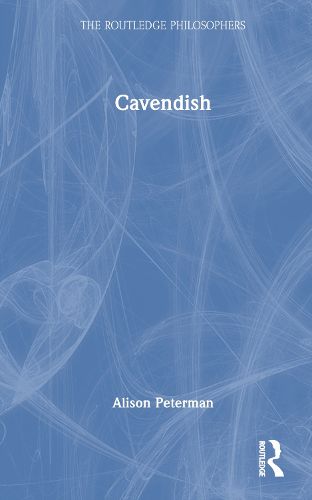Readings Newsletter
Become a Readings Member to make your shopping experience even easier.
Sign in or sign up for free!
You’re not far away from qualifying for FREE standard shipping within Australia
You’ve qualified for FREE standard shipping within Australia
The cart is loading…






Dazzlingly original but deeply engaged with the philosophical currents of her time, Margaret Cavendish (1623-1673) was one of the most ingenious and exciting philosophers of the seventeenth century. In Cavendish, Alison Peterman provides a systematic reading of Cavendish's natural philosophy. While highlighting interpretations of Cavendish that present her as an anthropomorphic thinker, Peterman advocates instead for reading Cavendish in light of her naturalism, materialism, and anti-anthropocentrism, explaining how these themes ramify in Cavendish's metaphysics, philosophy of mind, epistemology, and method. Cavendish articulates and explains what is novel and heterodox in Cavendish's views, and also examines her philosophical engagement with other seventeenth-century thinkers like Hobbes, Boyle, Descartes, and Hooke.
An outstanding introduction for newcomers to Cavendish, Cavendish is essential reading for students and scholars of Cavendish as well as those taking courses in seventeenth-century philosophy, metaphysics, history of science, philosophy of mind, epistemology, and philosophical methodology.
$9.00 standard shipping within Australia
FREE standard shipping within Australia for orders over $100.00
Express & International shipping calculated at checkout
Dazzlingly original but deeply engaged with the philosophical currents of her time, Margaret Cavendish (1623-1673) was one of the most ingenious and exciting philosophers of the seventeenth century. In Cavendish, Alison Peterman provides a systematic reading of Cavendish's natural philosophy. While highlighting interpretations of Cavendish that present her as an anthropomorphic thinker, Peterman advocates instead for reading Cavendish in light of her naturalism, materialism, and anti-anthropocentrism, explaining how these themes ramify in Cavendish's metaphysics, philosophy of mind, epistemology, and method. Cavendish articulates and explains what is novel and heterodox in Cavendish's views, and also examines her philosophical engagement with other seventeenth-century thinkers like Hobbes, Boyle, Descartes, and Hooke.
An outstanding introduction for newcomers to Cavendish, Cavendish is essential reading for students and scholars of Cavendish as well as those taking courses in seventeenth-century philosophy, metaphysics, history of science, philosophy of mind, epistemology, and philosophical methodology.